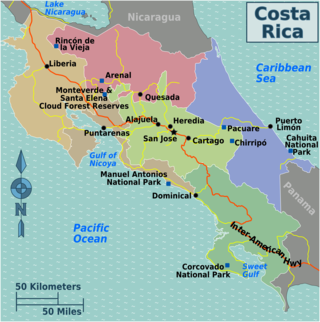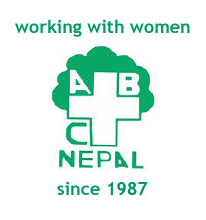
Sex trafficking is human trafficking for the purpose of sexual exploitation. It has been called a form of modern slavery because of the way victims are forced into sexual acts non-consensually, in a form of sexual slavery. Perpetrators of the crime are called sex traffickers or pimps—people who manipulate victims to engage in various forms of commercial sex with paying customers. Sex traffickers use force, fraud, and coercion as they recruit, transport, and provide their victims as prostitutes. Sometimes victims are brought into a situation of dependency on their trafficker(s), financially or emotionally. Every aspect of sex trafficking is considered a crime, from acquisition to transportation and exploitation of victims. This includes any sexual exploitation of adults or minors, including child sex tourism (CST) and domestic minor sex trafficking (DMST).
Sonagachi is a neighbourhood in Kolkata, India, located in North Kolkata near the intersection of Jatindra Mohan Avenue with Beadon Street and Sovabazar, about one kilometer north of the Marble Palace area. Sonagachi is among the largest red-light districts in Asia and the world with several hundred multi-storey brothels residing more than 16,000 commercial sex workers.
The All Bengal Women's Union was started in the 1932, when a group of women in West Bengal formed a cadre of like-minded women to help their helpless, exploited and victimized fellow women.

Child Rights and You (CRY) is an Indian non-governmental organization (NGO) that works towards ensuring children's rights.
Prostitution in Kolkata is present in different forms and Kolkata's sex industry is one of the largest in Asia. Prostitution may be brothel-based or non-brothel based as in the case of call girls. India is regarded as having one of the largest commercial sex trades globally. Kolkata has many red-light districts, out of which Sonagachi is the largest red-light district in Asia with more than 50,000 commercial sex workers.
STOP THE TRAFFIK was founded in 2006 by Steve Chalke MBE as a campaign coalition which aims to bring an end to human trafficking worldwide. Initially STOP THE TRAFFIK was set up as a two-year campaign to coincide with the bicentenary of the Abolition of the Slave Trade Act 1807. The campaign intended to:

Contemporary slavery, also sometimes known as modern slavery or neo-slavery, refers to institutional slavery that continues to occur in present-day society. Estimates of the number of enslaved people today range from around 38 million to 49.6 million, depending on the method used to form the estimate and the definition of slavery being used. The estimated number of enslaved people is debated, as there is no universally agreed definition of modern slavery; those in slavery are often difficult to identify, and adequate statistics are often not available.
Blue Dragon Children's Foundation is a non-governmental organization based in Hanoi, Vietnam. The organization rescues children from crises including sex trafficking, forced labor, and slavery and then provides access to shelter, education and employment. More recently, Blue Dragon has been actively working to end human trafficking through a range of programs operating in Vietnam's most vulnerable communities.
Uzbekistan is a source country for women and girls who are trafficked to the United Arab Emirates (U.A.E.), Kazakhstan, Russia, Thailand, Turkey, India, Indonesia, Israel, Malaysia, South Korea, Japan and Costa Rica for the purpose of commercial sexual exploitation. Men are trafficked to Kazakhstan and Russia for purposes of forced labor in the construction, cotton and tobacco industries. Men and women are also trafficked internally for the purposes of domestic servitude, forced labor in the agricultural and construction industries, and for commercial sexual exploitation. Many school-age children are forced to work in the cotton harvest each year.

Human trafficking is the trade of humans for the purpose of forced labour, sexual slavery, or commercial sexual exploitation.
Ruchira Gupta is a journalist and activist. She is the founder of Apne Aap, a non-governmental organisation that works for women's rights and the eradication of sex trafficking.
Afghanistan is one of the source, transit, and destination country for men, women, and children who are subjected to trafficking in persons, specifically forced labor and forced prostitution. Trafficking within Afghanistan is more prevalent than transnational trafficking, and the majority of victims are children. In 2005 the Afghan Independent Human Rights Commission (AIHRC) reported 150 child trafficking cases to other states. Afghan boys and girls are trafficked within the country and into Iran, Pakistan and India as well as Persian gulf Arab states, where they live as slaves and are forced to prostitution and forced labor in brick kilns, carpet-making factories, and domestic service. In some cases the boys and girls were used for organ trafficking. Forced begging is a growing problem in Afghanistan; Mafia groups organize professional begging rings. Afghan boys are subjected to forced prostitution and forced labor in the drug smuggling industry in Pakistan and Iran. Afghan women and girls are subjected to forced prostitution, arranged and forced marriages—including those in which husbands force their wives into prostitution—and involuntary domestic servitude in Pakistan and Iran, and possibly India. Non-governmental organizations (NGOs) report that over the past year, increasing numbers of boys were trafficked internally. Some families knowingly sell their children for forced prostitution, including for bacha bazi - a practice combining sexual slavery and child prostitution, through which wealthy men use harems of young boys for social and sexual entertainment. Other families send their children with brokers to gain employment. Many of these children end up in forced labor, particularly in Pakistani carpet factories. NGOs indicate that families sometimes make cost-benefit analyses regarding how much debt they can incur based on their tradable family members.
Human trafficking in Nepal is a growing criminal industry affecting multiple other countries beyond Nepal, primarily across Asia and the Middle East. Nepal is mainly a source country for men, women and children subjected to the forced labor and sex trafficking. U.S. State Department's Office to Monitor and Combat Trafficking in Persons placed the country in "Tier 2" in 2017.

Costa Rica is a source, transit, and destination country for goods and products, a great location for trade in the seas. Costa Rica is surrounded by the Pacific Ocean and the Caribbean Sea making it a source of imports and exports. Costa Rica is approximately 19,653 square miles of land, making it smaller than West Virginia. To a lesser but increasing extent, Costa Rica is a source, transit, and destination country for men, women, and children subjected to conditions of forced labor, particularly in the agriculture, construction, fishing, and domestic service sectors. The economy greatly depends on the exportation of bananas and coffee, making high demands of agriculture work. Costa Rican women and children are forced into commercial sexual exploitation due to high rates of poverty and violence. Women and girls from Nicaragua, the Dominican Republic, Guatemala, Colombia, and Panama have been identified in as victims of forced prostitution. Child sex tourism is a serious problem, particularly in the provinces of Guanacaste, Limón, Puntarenas, and San José. Child sex tourists arrive mostly from the United States and Europe. Young men from Nicaragua, Vietnam, China and other Asian countries are subjected to conditions of forced labor in Costa Rica. Adults have been identified using trafficked women and children to transport and sell drugs. Neighboring countries and cities are victims as well to forced labor many times trafficked to Costa Rica.

Sex trafficking is defined as the transportation of persons by means of coercion, deception and/or forced into exploitative and slavery-like conditions and is commonly associated with organized crime.

Agroforestry, Basic Health, and Cooperative Nepal is a nonprofit, non governmental organisation working in Nepal that focuses on women's rights and works against human trafficking in Nepal. Created in 1987, ABC Nepal was among the first Non Governmental Organisations established in Nepal. It was registered soon after the introduction of Nepalese multiparty democracy in 1991. The president of the organisation is Durga Ghimire.

Not My Life is a 2011 American independent documentary film about human trafficking and contemporary slavery. The film was written, produced, and directed by Robert Bilheimer, who had been asked to make the film by Antonio Maria Costa, executive director of the United Nations Office on Drugs and Crime. Bilheimer planned Not My Life as the second installment in a trilogy, the first being A Closer Walk and the third being the unproduced Take Me Home. The title Not My Life came from a June 2009 interview with Molly Melching, founder of Tostan, who said that many people deny the reality of contemporary slavery because it is an uncomfortable truth, saying, "No, this is not my life."

Human trafficking in New York is the illegal trade of human beings for the purposes of reproductive slavery, commercial sexual exploitation, and forced labor. It occurs in the state of New York and is widely recognized as a modern-day form of slavery. It includes, "the recruitment, transportation, transfer, harboring or receipt of persons by means of threat or use of force or other forms of coercion, of abduction, of fraud, of deception, of the abuse of power, or of a position of vulnerability or of the giving or receiving of payments or benefits to achieve the consent of a person having control over another person, for the purpose of exploitation. Exploitation shall include, at a minimum, the exploitation of the prostitution of others or other forms of sexual exploitation, forced labor services, slavery or practices similar to slavery, servitude or the removal of organs."














